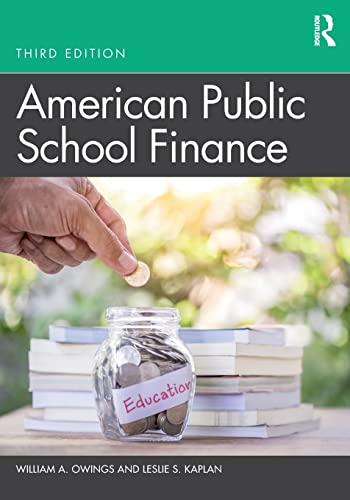An anecdote about Benjamin Franklin responding to an inquisitive woman at the close of the Constitutional Convention
Question:
An anecdote about Benjamin Franklin responding to an inquisitive woman at the close of the Constitutional Convention of 1787 goes like this:
Woman: “Well, Dr. Franklin, what have we got—a Republic or a Monarchy?”
Franklin: “A Republic, if you can keep it.”39 The evolution of American public education began in the Massachusetts Bay Colony.
Other colonies followed their example. The nation’s founders discussed education’s importance to sustain the new country’s democratic republic form of government. The Northwest Ordinances required territories wanting to join the Union to provide public education for its settlers. Nonetheless, delivering education largely remained a local responsibility.
The 20th century saw compulsory attendance laws enacted. Recently, certain views do not espouse compulsory education and challenge the direction education has taken for more than 200 years. For example, Milton Friedman, a Nobelwinning economist has said, “Like most laws, compulsory attendance laws have costs as well as benefits. We no longer believe the benefits justify the costs.”40 Likewise, education privatizers/school choice advocates criticize “big government,”
see public schools as a “government monopoly,” and want to redirect taxpayer funds away from public schools and to parents to use to send their children to private and religious schools.
Has the cost of education exceeded its benefits? On which side of this issue do you stand? Defend that position.
Step by Step Answer:

American Public School Finance
ISBN: 9781138499966
3rd Edition
Authors: William A. Owings, Leslie S. Kaplan





